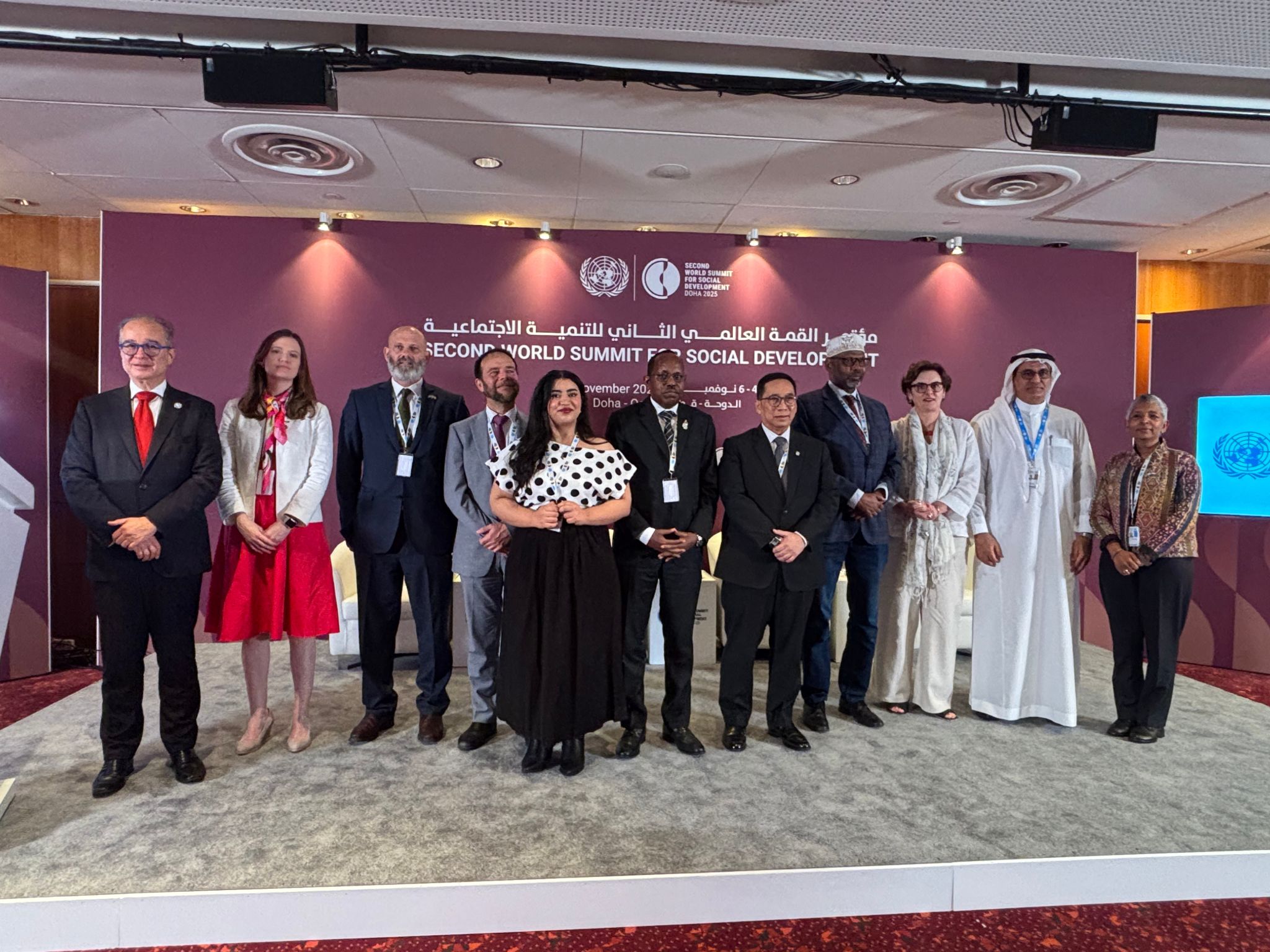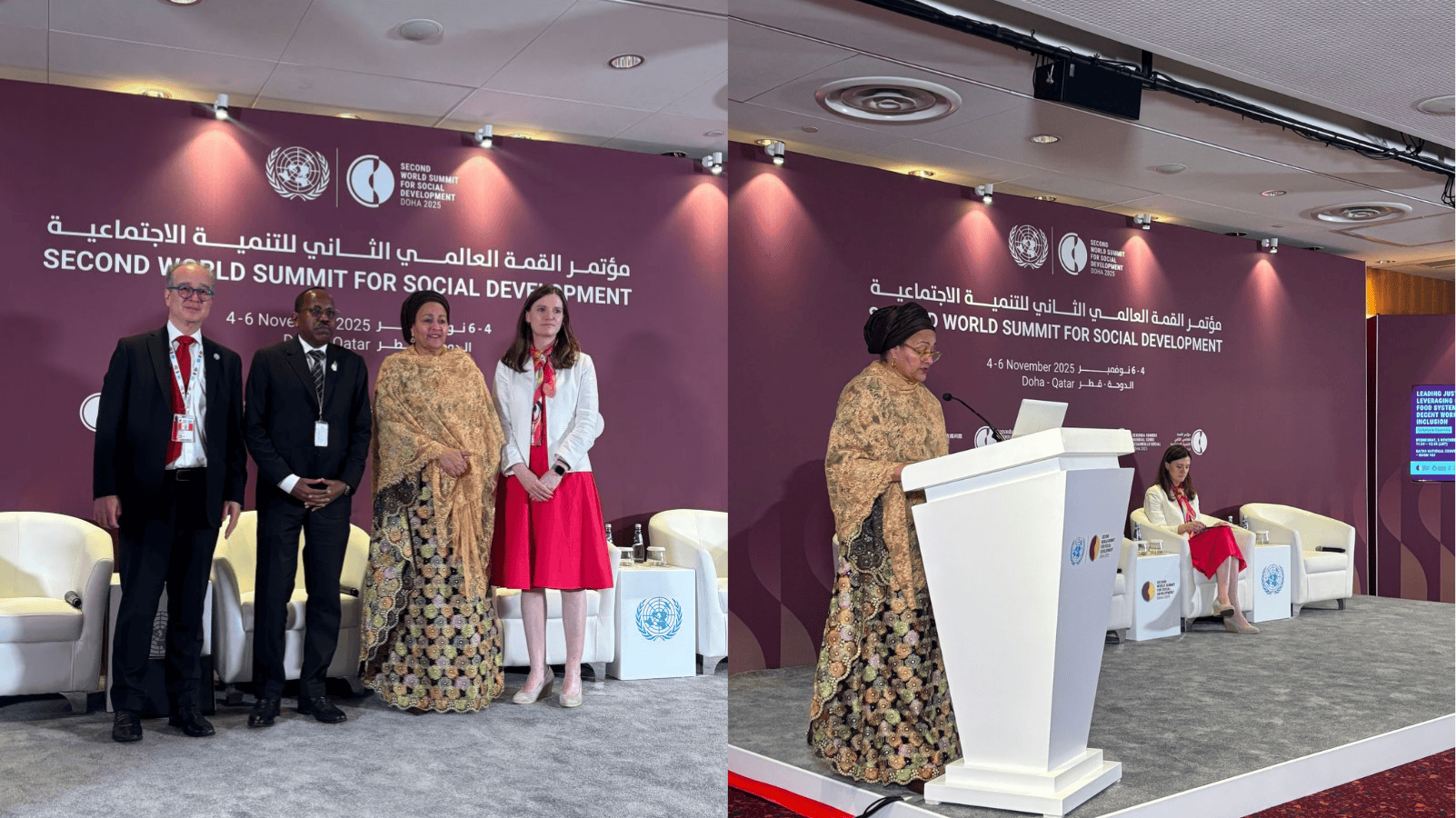Food systems at the heart of social progress: UN Food Systems Coordination Hub at the Second World Summit for Social Development

The United Nations Food Systems Coordination Hub brought a clear message to the Second World Summit for Social Development in Doha: transforming food systems is essential to creating dignified work, reducing inequality, and strengthening social cohesion. From small-scale farmers to urban food workers, from school meals to nutrition affordability, food systems shape how people live and participate in society – placing them at the foundation of social and economic well-being.
As part of the Summit’s official programme, the Hub convened the Solutions Session “Leading Just Transitions: Leveraging Sustainable Food Systems to Ensure Decent Work and Social Inclusion,” opened by the United Nations Deputy Secretary-General. The session gathered national delegations, UN agencies, civil society, and producer organizations to explore how policy and investment decisions can ensure fair livelihoods and affordable, nutritious food for all communities.
“Food systems determine how people live, work, and participate in society,” said Dr. Stefanos Fotiou, Director of the UN Food Systems Coordination Hub. “When food systems are designed to provide fair livelihoods for producers and ensure affordable, nutritious diets for families, societies are more stable and more resilient. The task now is to move from commitments to practical implementation that expands decent work and ensures affordable, nutritious diets for all communities.”

Momentum from UNFSS+4 to social development action
The Hub’s participation follows outcomes from the UN Food Systems Summit +4 Stocktake (UNFSS+4), held in Addis Ababa in July 2025, where governments reaffirmed food systems transformation as a national development priority. Many countries are now moving toward aligned action across agriculture, social protection, labor, health, climate, and finance – a shift the Hub is actively supporting.
Throughout the Summit, the Hub engaged in bilateral discussions with Member States and partners on:
- Strengthening community food economies and small-scale producer organizations
- Expanding public food procurement from women- and youth-led enterprises
- Designing nutrition-sensitive social protection and school meal systems
- Scaling climate resilience and local value chain infrastructure.
Deepening alignment and public engagement
The Hub worked closely with partners across the Summit to advance shared messaging on the centrality of food systems to social progress. This included a joint media and advocacy effort with the Joint SDG Fund, as well as high-level interviews and speaking engagements emphasizing the links between livelihoods, nutrition affordability, climate resilience, and social protection.
The op-ed “Food Systems Are the Missing Link in Social Development” (IPS, October 2025), co-authored by Dr. Stefanos Fotiou and George Conway, the UN Resident Coordinator in Somalia, also contributed to public dialogue on the role of food systems in advancing social progress.
In addition, Dr. Fotiou moderated the second panel of the Local2030 Coalition side event “Scaling Up Local Action for Inclusive Social Development,” highlighting the critical role of municipalities, producer associations, and local networks in driving transformation.
Next steps: Implementation with accountability
The Summit reaffirmed the need for:
- Public budgets aligned to national food systems pathways
- Fair value chains that benefit small-scale producers, women and youth
- Resilient infrastructure that protects communities from climate and market shocks
- Transparent monitoring to ensure that policy benefits reach households and workers.
“Food is social stability,” Dr. Fotiou emphasized. “No society can reduce inequality or build lasting peace if households cannot afford to eat well. Putting food systems at the center of social development is essential to both immediate wellbeing and long-term development.”
